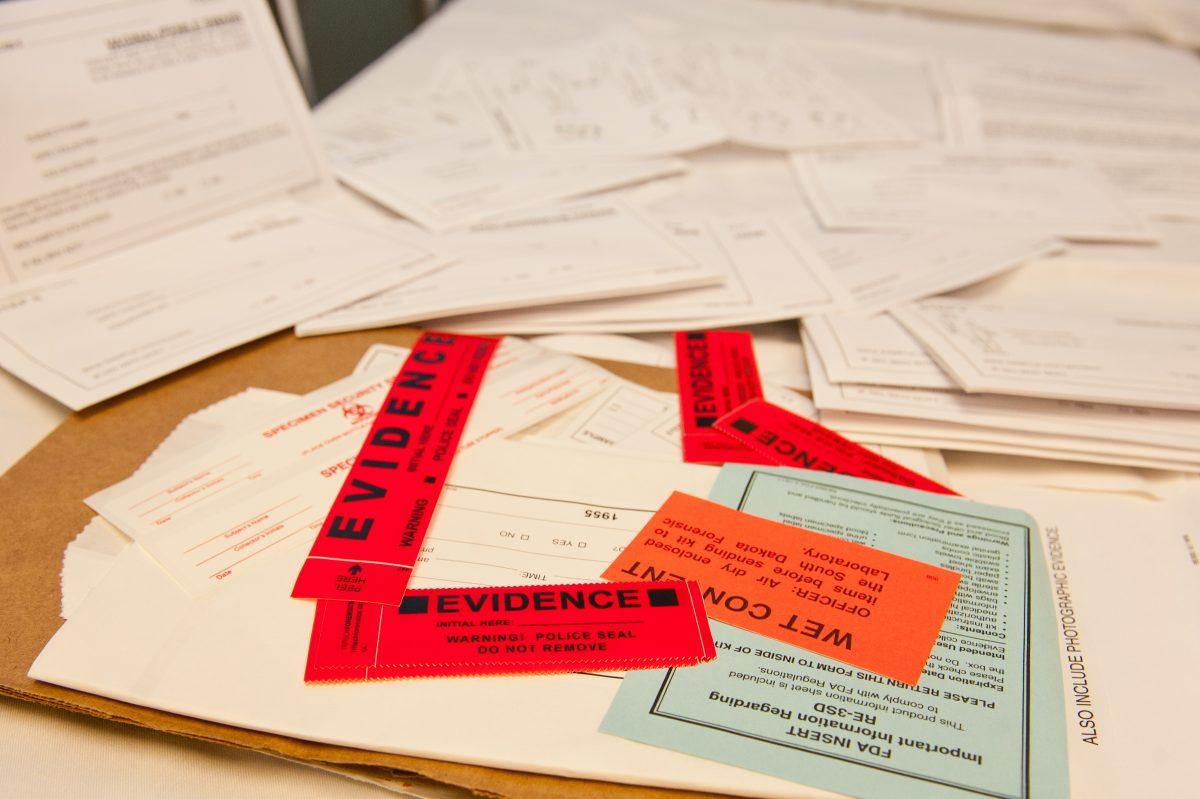Anna Brett, senior and Columbia Missourian writer, and Katherine Reed, Missourian Public Health and Safety editor, spoke during a workshop hosted by the Missouri School of Journalism and Investigative Reporters and Editors to share their experience writing an award-winning investigative story on Tuesday, Nov. 13.
The Columbia Missourian published Brett’s article titled “When evidence goes untested, sex offenders go undetected, advocates say” on Oct. 29, 2017. Brett’s story won an IRE student reporting award in 2017.
During investigating and writing this article, Brett encountered sources who were not willing to cooperate and were obstacles in the process.
“[I learned] to persist even when there are a lot of roadblocks with information,” Brett said. “The people you’re reporting on don’t want you to report, but you have to keep going because there is probably a story there.”
Brett said that this was her first investigative story, so she learned some new skills.
“I had never sent in a records request before,” Brett said. “I had never interviewed police in an in-depth, adversarial way. This was all new to me. The only thing I had done before [writing this story] was talk to survivors of trauma.”
Reed noticed Brett’s persistence while she was investigating.
“[Brett] is just very tenacious naturally,” Reed said. “She’s not a person who is easily discouraged. She got frustrated a couple times, but not nearly as frustrated as I got. I wanted people to stop messing with her.”
This article caused former Missouri Attorney General Josh Hawley to conduct an audit of Missouri’s sexual assault evidence backlog. As a result, nearly 5,000 untested sexual assault evidence kits were found. The audit also found that the untested kits alone would take more than five years to test, according to reporting done by the Missourian.
Before, there was no specific time requirement for evidence kits to be tested, but the audit found that the average crime lab processing time was 98 days, according to reporting done by the Missourian. However, as a result of Brett’s reporting, legislation was passed that set time limits on sexual assault evidence kits.
Law enforcement agencies are now required to take possession of completed evidence kits from hospitals within 14 days and are required to send the evidence to the crime lab within 14 days, according to the bill. Law enforcement agencies are also required to retain sexual assault forensic evidence for 30 years for unsolved cases.
Reed said that observation is important to discover issues such as the sexual assault evidence backlog.
“It was one of those [situations] where you trust your own instincts,” Reed said. “You notice something, you observe something, you check it out and it turns out to be wrong. That’s the thing that sometimes drives us, a sense of right and wrong on the public’s behalf.”
_Edited by Morgan Smith | [email protected]_














